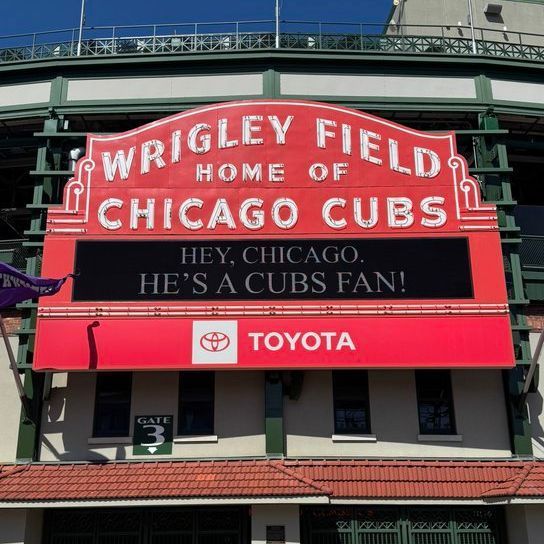It’s been over 400 years since the Elizabethan actor Edward Alleyn set up his school for “12 poor scholars” in Dulwich, south London. The estate he set up still benefits three fee-paying south London schools – Dulwich College, Alleyn’s and James Allen’s Girl’s School (JAGS). But now the elite private school Alleyn’s – where Jude Law , Pixie Geldof and Laurence Llewelyn-Bowen were educated – is moving north of the river for the first time in its history.
It’s just the latest example of a prestigious public school franchising its name to create branded outposts all over the world. In February, Alleyn’s announced that it was launching offshoots in Regent’s Park from September this year and in Hampstead from September 2026, with an aggressive marketing campaign in underground stations across north London. Alleyn’s – which costs £10,000 a term – has teamed up with the private education group Cognita to take over two existing north London schools – North Bridge House Regent’s Park Preparatory School and North Bridge House School Hampstead.

“It’s super exciting and we’re genuinely thrilled,” says Jane Lunnon, head of Alleyn’s, which boasts a 25-metre swimming pool and dance studio on site. “Cognita will continue to run the schools, but Alleyn’s is responsible for the education. So I’ll sit on an advisory board at these new schools, but the teaching staff are staying the same.
A lot of work and thought, and care have gone into ensuring the quality is transferred.” Lunnon says that the new schools will benefit from Alleyn’s “value-led holistic education”, including AIQ – an AI-focused curriculum which “prepares kids to flourish in an AI world” and AEQ – which concentrates on their “emotional quotient”. “We’re in a very fortunate position that the school is flying and we have 10 applicants for every place,” says Lunnon.
“There’s an excitement about sharing what we do. The demand for places [at the new outposts] has been beyond our wildest dreams.” Lunnon says that if all goes well, Alleyn’s will look to expand further, including internationally.
Alleyn’s isn’t the first prestigious private school to lend its name and ethos to other outposts. In 1996, Alleyn’s sister school, Dulwich College , opened a “sister school” a little further afield than north of the river – in Phuket, Thailand – largely catering to expats. Two years’ later, Harrow School followed suit in Bangkok, and you can now attend Harrow (or a version of it) in 14 locations around the world .
The famous British private school, which counts Sir Winston Churchill amongst its alumni, licenses its name, logo, uniform and education practices to international partners for a considerable fee. According to the Independent Schools Council, there are now 107 branded school campuses operating worldwide, educating almost 71,600 pupils. The franchise model has become a much-replicated way of raising funds for these schools, without having to put their fees up.
And now that the Labour government has applied VAT to school fees , could many more private schools be following suit? Selina Boyd, editor of the Good Schools Guide International, says the success of a branded school hinges on its reputation. “Parents are attached to the perceived track record and trust of branded schools,” she explains. “Branded schools can almost short-cut the process when they’re setting up – it might take an unbranded school years to develop their name and demonstrate their credibility.
” Nneka Eze, 49, a surgeon from south London has a daughter in Year 8 at Alleyn’s. “We heard inklings about expansion and initially parents were apprehensive about how it would work,” she says. “But after an online discussion with the senior leadership team, I understood that it was about extending Alleyn’s network away from the mothership.
My daughter’s having the time of her life at Alleyn’s, I think it’s great they’re offering that opportunity to other children.” But not everyone is happy about Alleyn’s imminent expansion. Many parents’ WhatsApp groups are ablaze with the news, and existing north London private schools are reportedly anxious about the competition.
Devonshire House in Hampstead – where children currently leave at 13 – has allegedly started surveying parents to see if they’re keen for them to open the school until they are 18 years old. Haverstock Hill, the main road from Chalk Farm to Hampstead, is now plastered with adverts for Alleyn’s on one side of the road and Devonshire House on the other. “Plenty of parents have lots of unanswered questions about the impact this will have on the school values and the educational approach.
I wouldn’t be happy if North Bridge House (NBH) suddenly becomes highly competitive and academic, as not every child needs that,” says one parent of a Year 9 child at North Bridge House, Regent’s Park. “The message being delivered to NBH parents is that this is just a name change, whereas the publicity material Alleyn’s has put out sounds like a school takeover. It’s been very confusing for current parents, and I can only imagine what it’s been like for teachers.
” Cognita has operated since 2004 and now manages 100 schools in 17 countries. They were also behind Brighton College’s expansion into satellite schools in Singapore, Dubai, Bangkok, Abu Dhabi, Al Ain, and other locations. James Carroll is the general manager of Cognita.
He says that while there is, of course, a commercial agreement behind these franchises, the most important thing for these schools is that they can “grow outside their current jurisdiction and expand their alumni network”. “The North Bridge House schools have been part of Cognita for some years, and we’ve been exploring opportunities for their future direction,” he explains. “It’s about an alignment of values so not all school brands would work.
Quite a few schools do come to us, but we chose Alleyn’s because we felt the visions were aligned. Alleyn’s is very much about a whole child developing their character, not just academics.” Carroll says turning NBH schools into Alleyn’s has been a year in the making, and has involved a “multi-million pound” investment from Cognita.
“They’ll be new learning spaces, a new logo, new uniform, new name, but with the teaching staff we’ve strived to stay consistent. Fees at the new schools won’t match Alleyn’s, they’ll follow their own fee cycle. There won’t be a huge spike.
We’re setting ourselves up to be an authentic Alleyn’s education, and for parents it’s an amazing opportunity.” So is this the new model for private education? Could we see an Eton on every street corner? “There are some schools that have said that they will never do it – I think Eton is one of them,” says Daniel Lewis, managing director of Repton International Schools Ltd, which started in Derbyshire and now has outposts on three continents. “They tend to be schools that have no need to, since they have huge endowments and know that they are totally secure.
They don’t want to be bothered with it, which is a perfectly reasonable position to take.” And although north of the river isn’t such a distance, if Alleyn’s has its sights set on international outposts, it may not be such easy money to line the school coffers. Joy Qiao is the founder and chair of the governors of Wellington College, China.
“ Opening an overseas campus is not for the faint-hearted,” she says. “Try explaining the design of a cricket field to someone who’s never heard of the sport, or finding a vendor in China to build the wicket and the nets. Qiao says that although more people will know a school’s brand if you set up other outposts, it all comes down to the quality.
“It can either enhance or damage your reputation.”.
Sports

The private school turf war coming to north London

It’s been over 400 years since the Elizabethan actor Edward Alleyn set up his school for “12 poor scholars” in Dulwich, south London. The estate he set up still benefits three fee-paying south London schools – Dulwich College, Alleyn’s and James Allen’s Girl’s School (JAGS).















